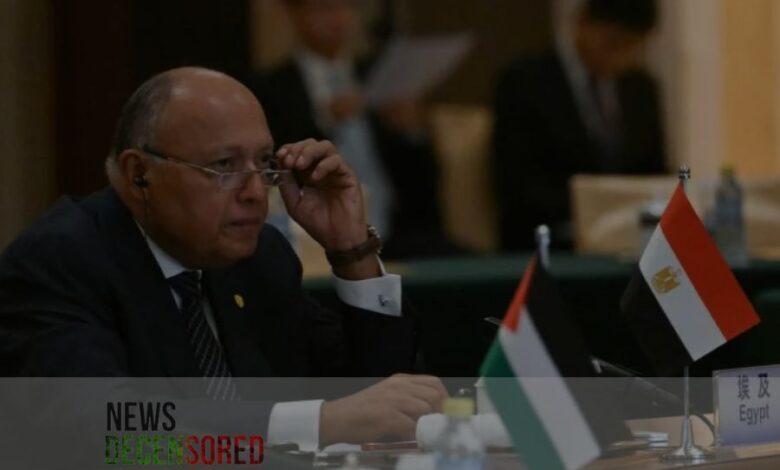Egypt says it may withdraw as Gaza ceasefire mediator

The head of Egypt’s State Information Service, Diaa Rashwan, said on Wednesday that Egypt requires the presence of a Palestinian party to receive aid on the Palestinian side of the Rafah crossing, warning that Cairo may withdraw from mediation if its role is questioned.
Rashwan added in televised statements, “Attempts to question Egypt’s mediation roles may push it to withdraw from this mediation,” which seeks to reach a ceasefire and exchange of prisoners between Israel and the Hamas movement.
He considered that attempts to cast doubt on and insult Egypt’s mediation role will only lead to further complicating the situation in Gaza and the entire region.
The head of the State Information Service stressed that if Egypt withdraws from the mediation in light of the continued Israeli allegations, this does not mean that Egypt has abandoned its Palestinian brothers, stressing that Cairo is an honest mediator, biased by international law and international humanitarian law.
Rashwan’s statements came in response to a report on Tuesday, in which it claimed, citing unidentified sources, that Egypt changed clauses in a draft ceasefire agreement between Israel and Hamas and added conditions demanded by the movement without informing the Israelis.
He added in a statement that the American network’s allegations are “false” and “devoid of any information or facts,” noting that Egypt “categorically rejects” the allegations contained in the report and that the Information Service sent an official letter to the network demanding that it publish the Egyptian response immediately. Considering that the American network’s report “may aim to distort Egypt’s main and prominent role in the ceasefire attempts and negotiations in the Gaza Strip.
In a related matter, US Secretary of State Anthony Blinken urged Egypt to do everything in its power to ensure the flow of humanitarian aid to the Gaza Strip at a time when food and medicine heading to the Strip are accumulating on the Egyptian side.
During a hearing in the US House of Representatives earlier Wednesday, Blinken said that the Rafah crossing leading to the southern Gaza Strip had been closed since the Israeli army took control of it on May 7, pointing out that the fighting near the crossing made the task of delivering aid difficult. Still, he added that the flow of aid is not… In what appears to be a reference to the open Kerem Shalom crossing near Rafah, it is still possible.
He continued: We must then find a way to ensure that the aid entering through the Rafah crossing can pass safely, but we strongly urge our Egyptian partners to do everything in their power to ensure the flow of aid.
Israel is launching a military campaign against the Gaza Strip, where 2.3 million people live, in retaliation for a surprise attack launched by Hamas on October 7 of last year.
The arrival of aid to the southern Gaza Strip has been disrupted since Israel intensified its military operations in Rafah, a move that the United Nations says forced about 900,000 to flee and raised tensions with Egypt.
Egyptian security sources explained that Egypt could not bring aid through the Rafah crossing because that would mean accepting the Israeli military presence at the crossing, which Cairo opposes.
The Egyptian Foreign Minister said on Monday that the Israeli military presence and operations carried out by the Israeli army are conditions that expose truck drivers to danger, which led to the cessation of aid crossing the border.
On the other hand, Israeli Minister of Strategic Affairs Ron Dermer claimed that the obstruction was caused by Egypt, adding in statements to a program broadcast by the MSNBC network that Egypt prevented two thousand trucks of humanitarian aid from entering Gaza because they have a political problem, regarding the Rafah crossing.




